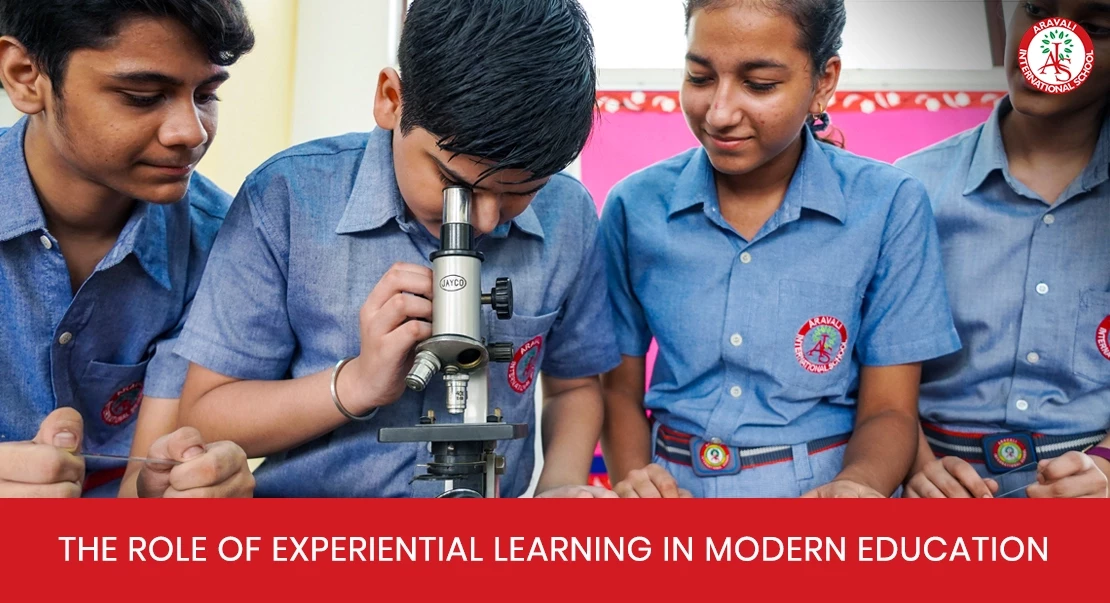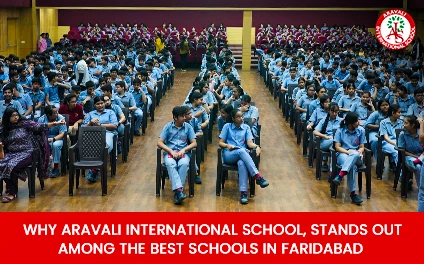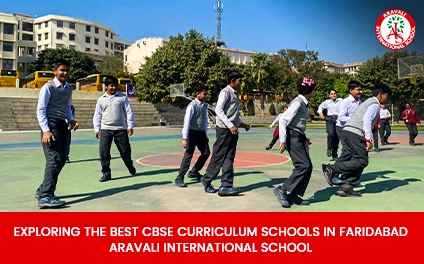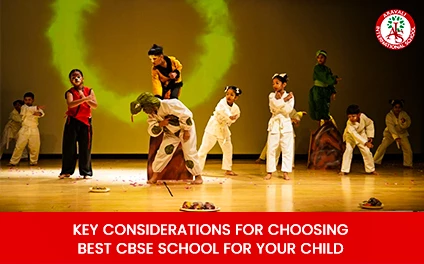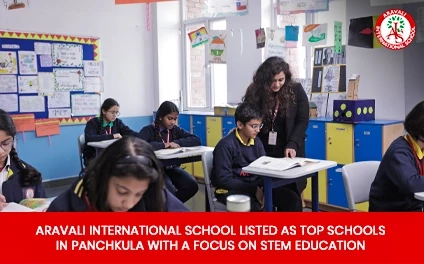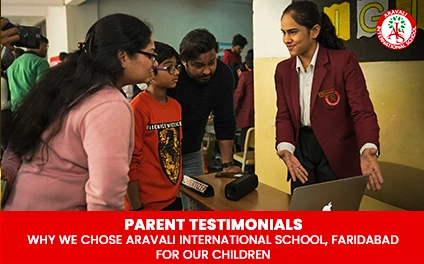As the educational landscape changes rapidly, traditional teaching methods are being replaced or supplemented by experiential learning. The focus is on learning by experience, encouraging students to be active in their learning. Across the globe, including CBSE schools in Faridabad and other good schools in Faridabad, schools understand the importance of experiential learning for a practical and engaging educational experience.
About Experiential Learning
The pedagogical approach of experiential learning is an approach for students to learn by doing. Educational theorist David Kolb popularized the idea, advocating using students' direct experiences with real-world problems. In contrast to traditional education, which often depends heavily on rote memorization and passive learning, this method is very different.
Experiential learning involves several key components:
- Concrete Experience: An activity or project is provided where students have firsthand experience.
- Reflective Observation: Students reflect on what they learned and how they felt after the experience.
- Abstract Conceptualization: Students apply their experiences to theoretical concepts.
- Active Experimentation: Once the new knowledge is applied in new situations, learners reinforce their learning.
Benefits of Experiential Learning
The integration of experiential learning into modern education offers numerous advantages that can significantly enhance student development:
- Enhanced Understanding of Concepts: Students struggle to grasp theoretical concepts without context. This helps them to apply knowledge in real-world situations and make abstract ideas more tangible and relatable through experiential learning. For example, a student studying environmental science may participate in a local conservation project, which helps to deepen their understanding of ecological principles.
- Stimulated Creativity and Problem-Solving Skills: Real-world challenges make students think creatively and come up with innovative solutions. By taking a hands-on approach to the problem, students are taught to think critically about situations and find practical ways to get around obstacles.
- Valuable Life Skills: Learning by experience allows students to develop important life skills, such as teamwork, communication, and leadership. Working on projects together strengthens interpersonal skills and prepares students for future professional environments where these skills are necessary.
- Improved Attitudes Toward Learning: Students can become disengaged through traditional education. Experiential learning is more dynamic and interactive; it makes education enjoyable and relevant. If students can see the direct impact of their learning on real-life situations, they are more likely to develop a positive attitude towards school.
- Learning from Mistakes: In the traditional educational setting, mistakes are often seen as unfavourable, but experiential learning encourages students to see mistakes as opportunities to grow. Through experimentation with different approaches and reflection on why they did not work, students build resilience and adaptability, which are necessary for success in any field.
- Catering to Diverse Learning Styles: All students learn differently – some learn visually, some through hands-on activities. These differences are accommodated by experiential learning, which has many ways for students to engage and makes certain that all students have the opportunity to do so.
Experiential Learning in Schools
To effectively incorporate experiential learning into the curriculum, schools must adopt innovative teaching strategies:
- Project-Based Learning: Project-based assignments that involve students investigating real-world issues or challenges can be implemented in schools. This increases engagement and allows students to apply theoretical knowledge practically.
- Field Trips and Workshops: Field trips or workshops inviting experts can give students an immersive experience to understand a subject better. For instance, a factory visit by students studying manufacturing processes could link theory to practice.
- Community Service Projects: Encouraging students to participate in community service fosters social responsibility while providing hands-on experience. Schools can partner with local organizations to create opportunities for students to contribute meaningfully while learning valuable lessons about collaboration and empathy.
- Internships and Apprenticeships: High school programs can include internships or apprenticeships that allow students to gain practical experience in their fields of interest. These experiences not only enhance their resumes but also provide insights into potential career paths.
The Future of Education
As we move further into the 21st century, the role of experiential learning will continue to grow within educational institutions, including the schools in Faridabad Haryana. The shift towards hands-on, engaging methods reflects a broader understanding of how students learn best—through active participation rather than passive reception.
Incorporating experiential learning into curricula not only prepares students for academic success but also equips them with the skills necessary for navigating the complexities of modern life. As parents evaluate options among all schools in Faridabad, they should prioritize those that embrace this progressive approach to education.
Conclusion
The role of experiential learning in modern education cannot be overstated. By fostering an environment where students actively engage with their education through real-world experiences, schools can cultivate critical thinkers who are well-prepared for future challenges. As institutions like Aravali International School and other good schools in Faridabad continue to innovate their teaching methods, they pave the way for a more inclusive and effective educational landscape that benefits all learners.
In conclusion, embracing experiential learning is essential for creating a vibrant educational experience that resonates with today’s learners and prepares them for tomorrow's challenges.



 25 December ,2024
25 December ,2024 Depreet Singh
Depreet Singh 